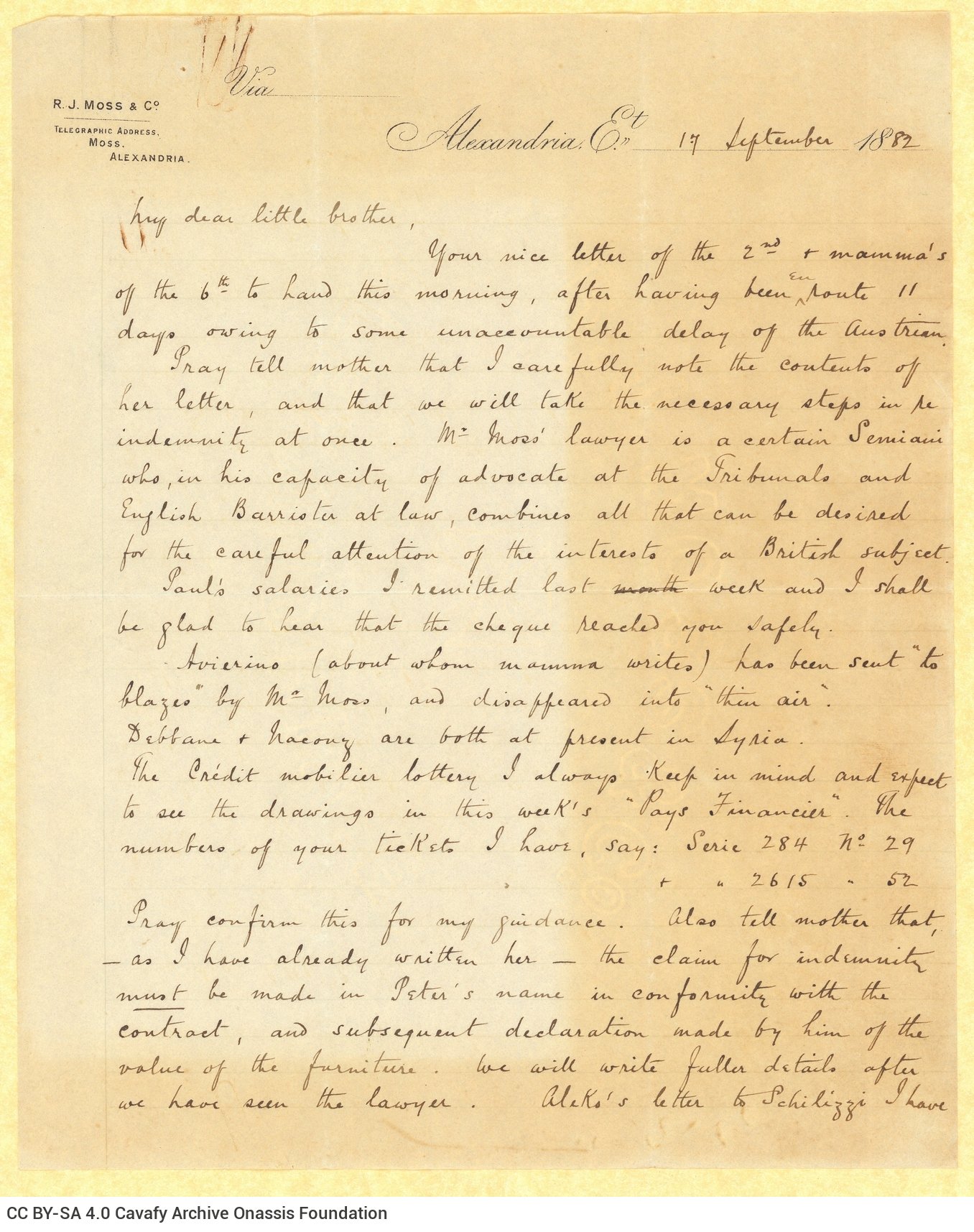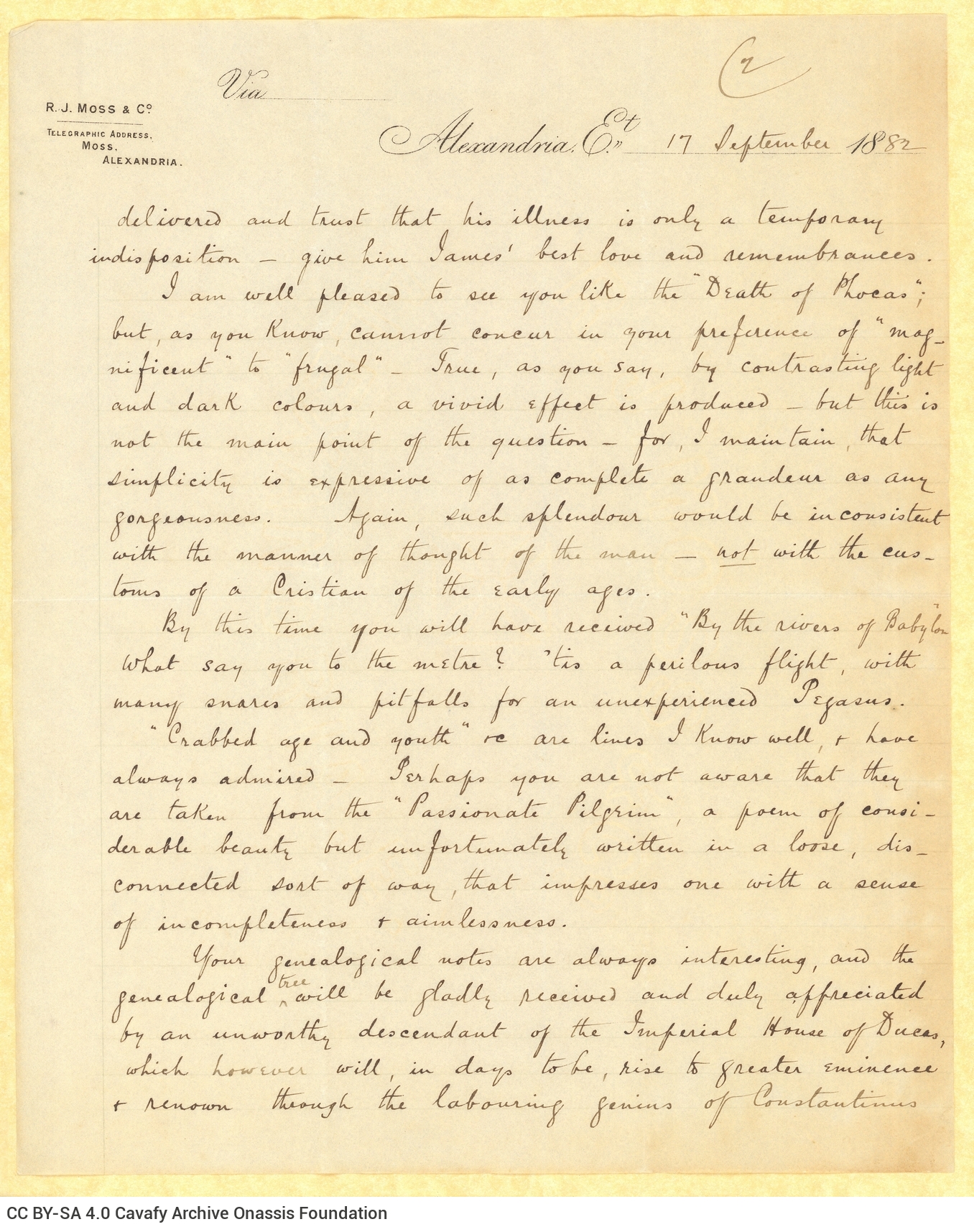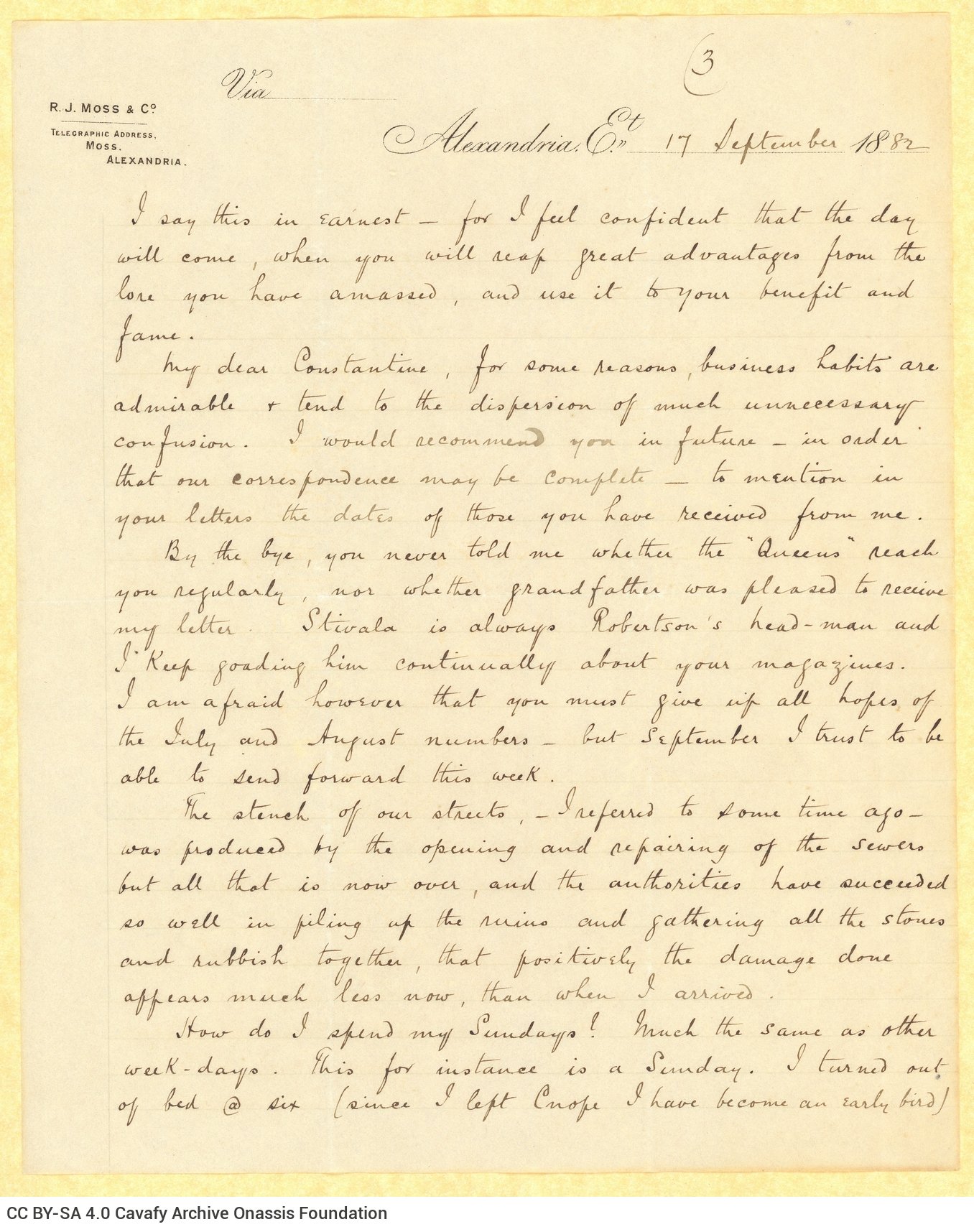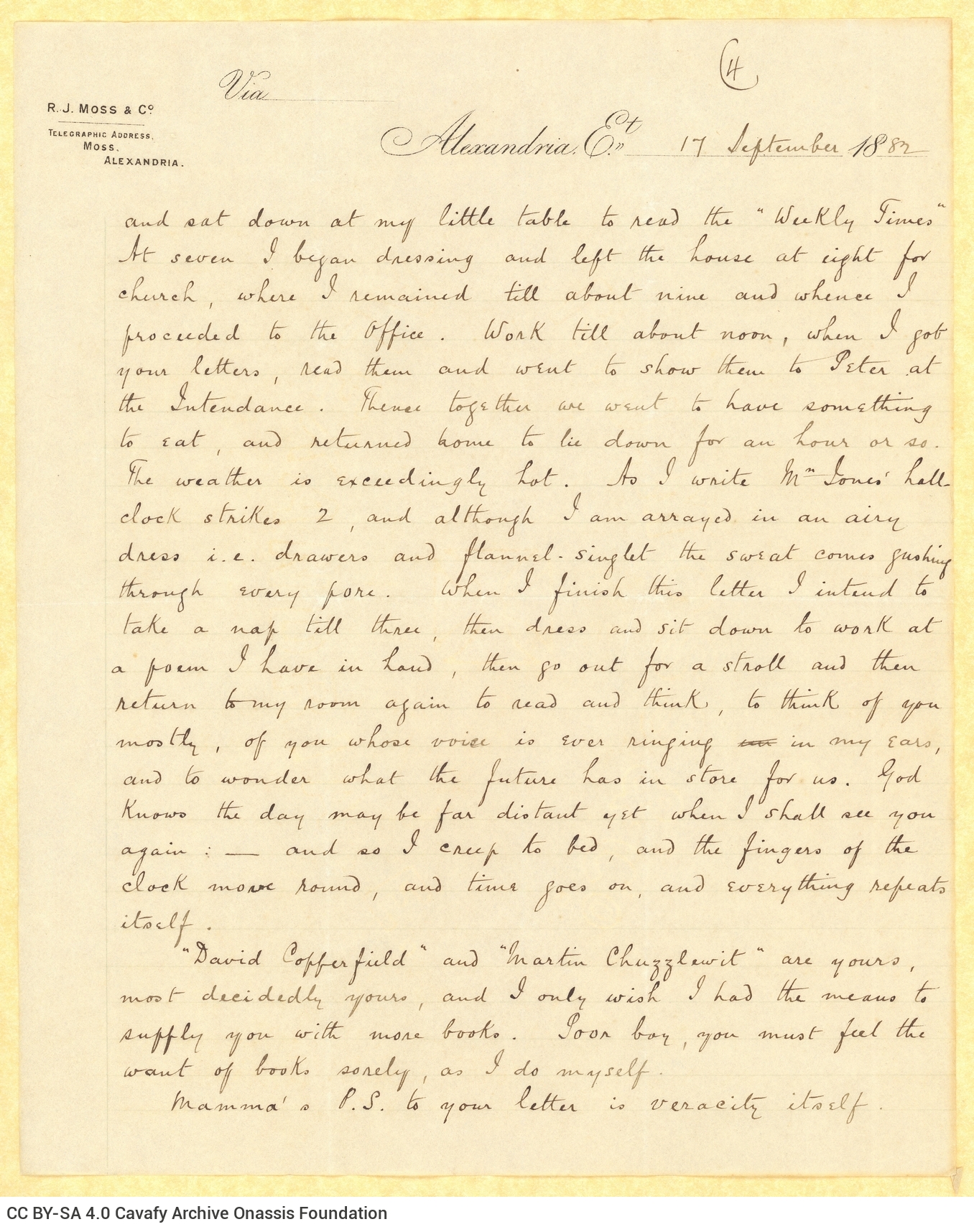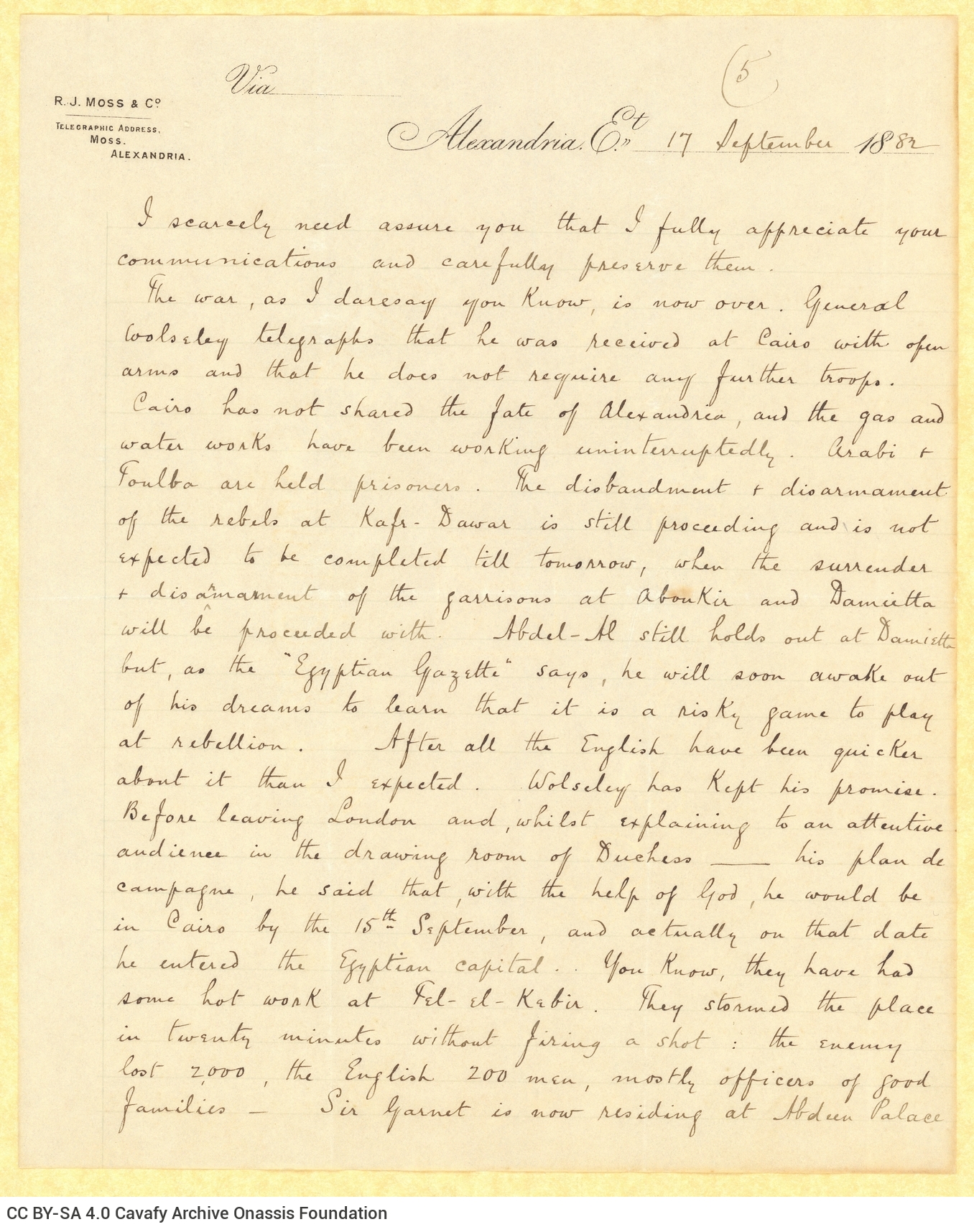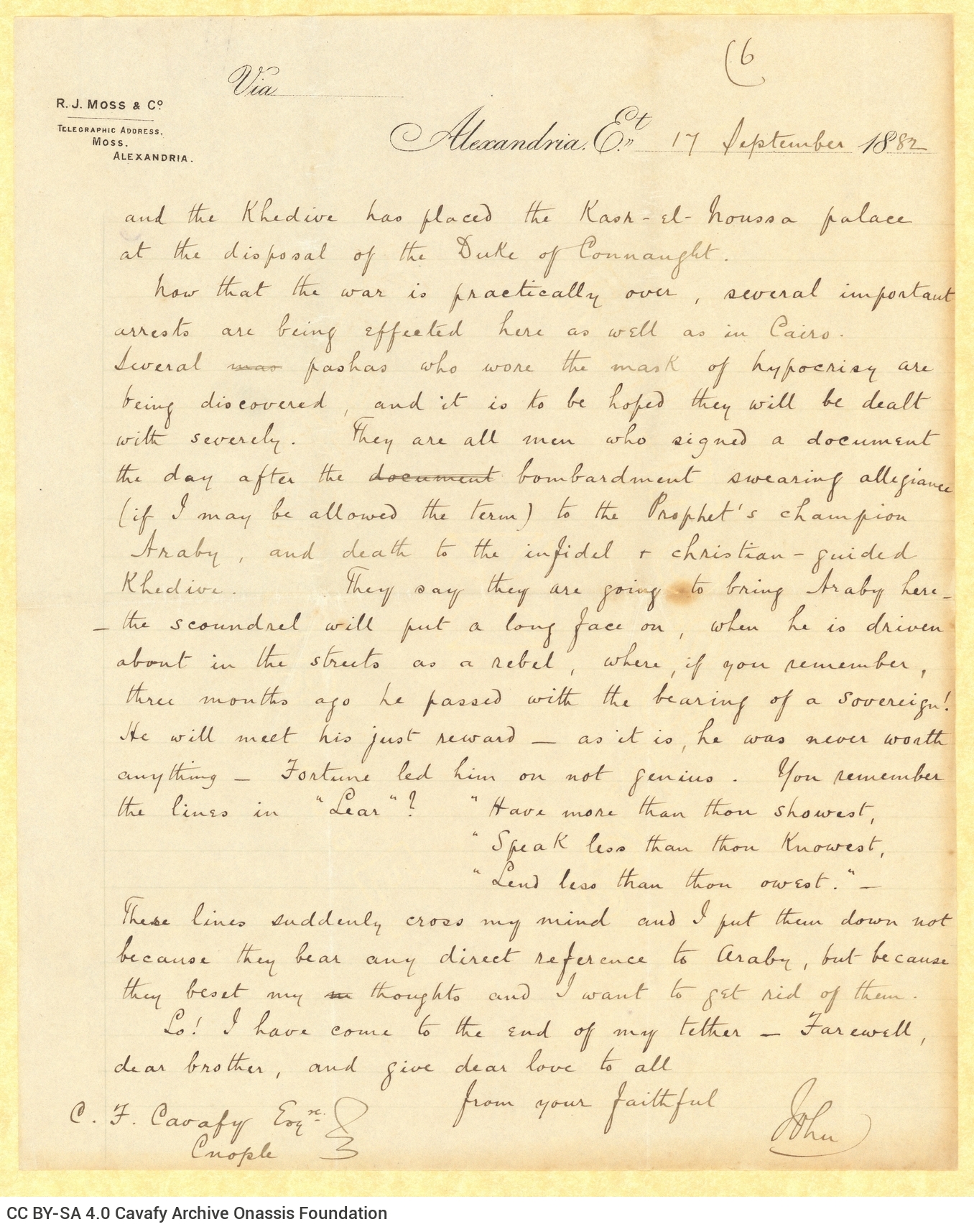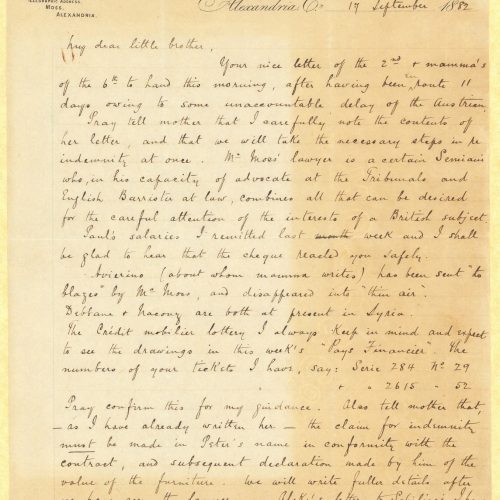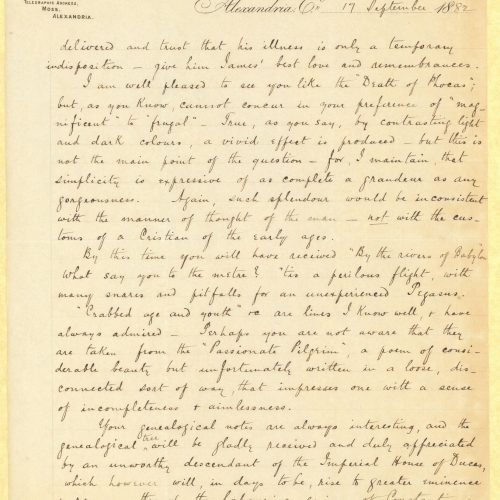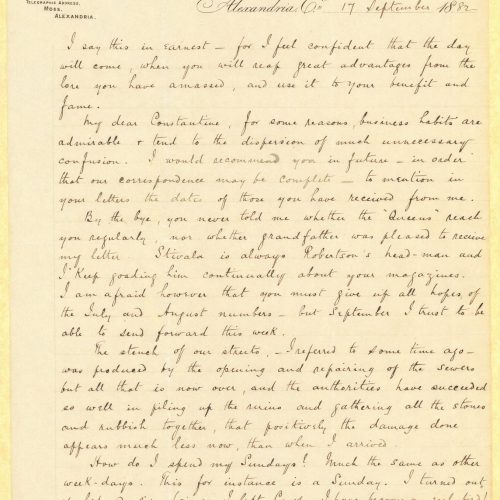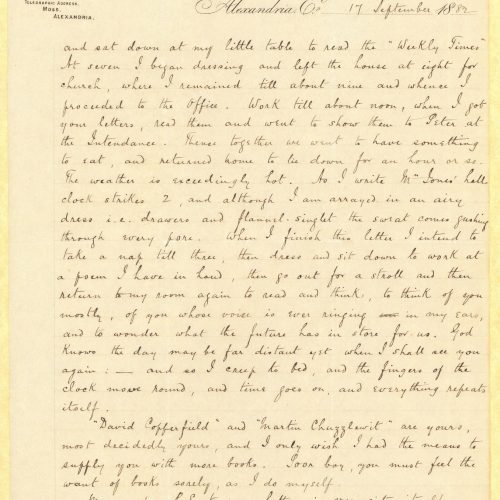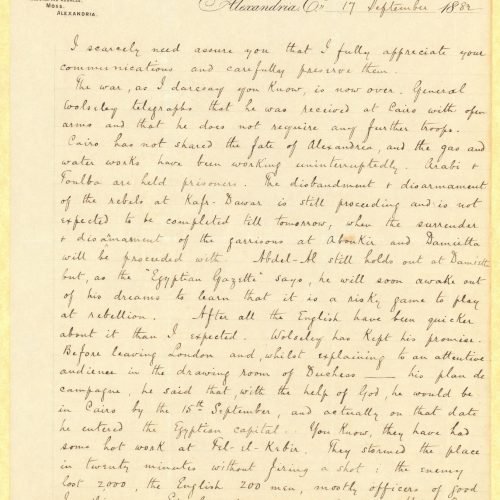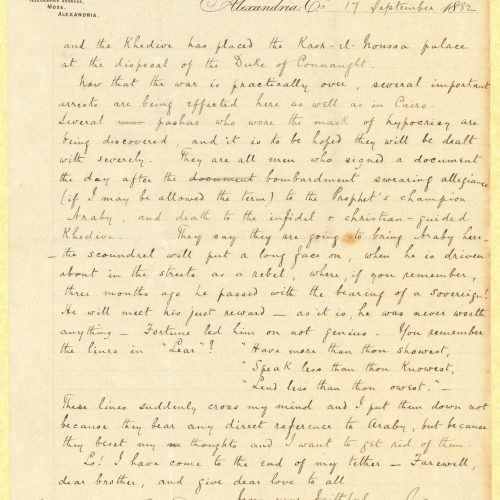υπογράμμιση
υπογράμμιση
πράσινη γραμματοσειρά
κίτρινη γραμματοσειρά
κόκκινη γραμματοσειρά
ΠΕΡΙΓΡΑΦΗ ΨΗΦΙΑΚΟΥ ΑΝΤΙΓΡΑΦΟΥ
ΠΕΔΙΟ ΑΝΑΓΝΩΡΙΣΗΣ
27,5 x 22,5 εκ.
ΠΕΔΙΟ ΠΛΑΙΣΙΟΥ ΠΑΡΑΓΩΓΗΣ
ΠΕΔΙΟ ΠΕΡΙΕΧΟΜΕΝΟΥ ΚΑΙ ΔΙΑΡΘΡΩΣΗΣ
Χειρόγραφη επιστολή του Τζων Καβάφη προς τον Κ. Π. Καβάφη στο recto έξι διαγραμμισμένων φύλλων της εταιρείας R. J. Moss & Co., Alexandria. Τα φύλλα 2-6 αριθμημένα πάνω δεξιά. Θίγονται οικογενειακά και οικονομικά θέματα, αλλά και η ποίηση, οι γενεαλογικές σημειώσεις του Καβάφη, η πολιτική κατάσταση στην Αλεξάνδρεια και την Αίγυπτο γενικότερα. Σχολιάζονται ποιήματα που έχει συνθέσει ο Τζων.
ΠΕΔΙΟ ΟΡΩΝ ΠΡΟΣΒΑΣΗΣ ΚΑΙ ΧΡΗΣΗΣ
Αγγλική
Γραφή με μελάνι. Υδατόσημο: R. J. Moss & Co. Alexandria. Φθορά φυσικού τεκμηρίου: οξειδώσεις.
ΠΕΔΙΟ ΠΑΡΑΤΗΡΗΣΕΩΝ
Η επιμέλεια των μεταγραφών των επιστολών του Ιωάννη Κωνσταντίνου Καβάφη προς τον Κ. Π. Καβάφη πραγματοποιήθηκε για πρώτη φορά από την Κατερίνα Γκίκα και αναρτήθηκε στον επίσημο διαδικτυακό τόπο του Αρχείου Καβάφη.
Γίνεται αναφορά στο έργο «The death of Phocas», ποίημα του Τζων, το οποίο άρεσε στον Κ. Π. Καβάφη. O Τζων αναφέρεται επίσης στο ποίημά του «By the rivers of Babylon». Μιλά για τις επιρροές του από την ανθολογία Passionate Pilgrim, η οποία εκδόθηκε το 1599 και περιέχει, ανάμεσα σε άλλα, και σονέτα του Σαίξπηρ. Στη συνέχεια γίνεται λόγος για τις γενεαλογικές σημειώσεις του Καβάφη. Επίσης, του στέλνει και δύο έργα του Ντίκενς.
ΣΗΜΕΙΑ ΠΡΟΣΒΑΣΗΣ
Καβάφης, Ιωάννης Κωνσταντίνος (John), «Επιστολή του John Καβάφη προς τον Κ. Π. Καβάφη» (17.09.1882), Επιστολή, Αρχείο Κ. Π. Καβάφη του Ιδρύματος Ωνάση, GR-OF CA CA-SF02-S01-SS02-F20-SF001-0003 (378), στο: Ψηφιακή Συλλογή του Αρχείου Καβάφη, επιμ. Ίδρυμα Ωνάση, Αθήνα, τελευταία ενημέρωση 01.10.2025: https://doi.org/10.26256/CA-SF02-S01-SS02-F20-SF001-0003.
